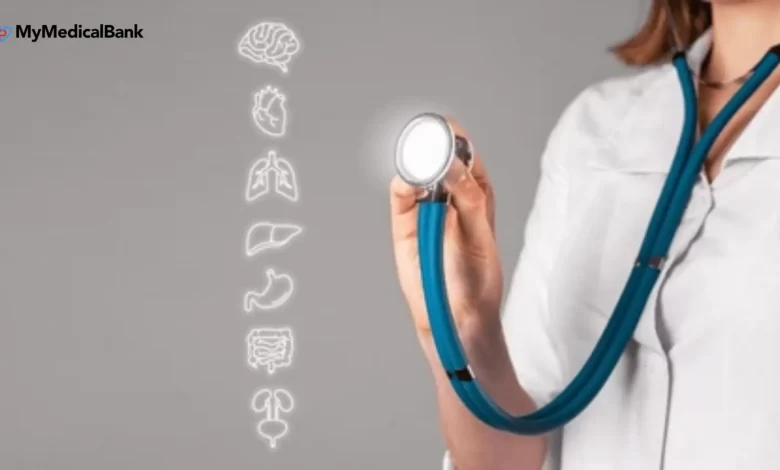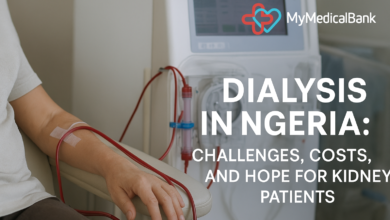How Often Should You Do a Full Body Health Check in Nigeria?

In Nigeria today, many people still only visit the hospital when they are seriously ill. But waiting until symptoms appear can sometimes mean it’s already too late. A full body health check is not just for those who feel sick; it’s a smart habit for anyone who wants to live a longer, healthier life. Just like you service your car regularly, your body also needs scheduled check-ups to catch hidden issues early.
But how often should you do this in Nigeria, considering our lifestyle, environment, and access to care? This post breaks it down simply.
What Is a Full Body Health Check?
A full body health check is a comprehensive medical assessment that helps evaluate your overall health. It usually involves physical examination, blood tests, urine tests, imaging (like X-rays or ultrasounds), and screenings for common diseases such as hypertension, diabetes, liver or kidney problems, and infections. It can also include checks for reproductive health, mental health, and even dental health, depending on where you go and what package you choose.
In Nigeria, many hospitals and diagnostic centres now offer various health check packages tailored to gender, age, and health risk.
Why Are Health Checks Important in Nigeria?
Nigeria faces a unique mix of health challenges. These include infectious diseases like malaria, typhoid, hepatitis, and HIV, alongside rising cases of lifestyle-related illnesses such as diabetes, high blood pressure, obesity, and stroke. Add that to inconsistent access to clean water, stressful urban living, sedentary jobs, and rising food prices that affect nutrition, and you’ve got a recipe that makes regular health monitoring essential.
Also, because many Nigerians practise self-medication or rely heavily on herbal remedies and pharmacies, early signs of illness are often ignored or misdiagnosed. A routine health check helps detect hidden conditions early enough to manage or cure them.
How Often Should You Go for a Full Body Health Check?
The frequency of a full body health check depends on your age, personal health history, family history, and lifestyle. Here’s a guide for different groups in Nigeria:
1. Children and Teenagers (0–19 years)
Frequency: At least once a year
Why: To monitor growth, nutrition, vaccination status, and early signs of health problems like asthma, anaemia, or malnutrition.
Routine check-ups for children are also important for eye health, dental care, and developmental milestones. Many Nigerian schools now request health reports for enrolment or school clinics, so it’s wise for parents to stay ahead.
2. Young Adults (20–35 years)
Frequency: Once every 1–2 years if generally healthy
Focus Areas: Blood pressure, cholesterol, blood sugar, STI screenings, reproductive health, mental health screening.
Young adults often feel invincible and rarely think of health checks unless there’s an emergency. However, this is the age when habits are formed. If you smoke, drink, have poor eating habits or are inactive, a yearly check-up is ideal.
For women, regular pap smears, breast checks, and reproductive system assessments are key. For men, prostate and sexual health checks should not be ignored even if symptoms aren’t visible yet.
3. Middle-Aged Adults (36–55 years)
Frequency: At least once every year
Why: This is when lifestyle diseases start to show. Your health should be checked annually to catch any changes early.
At this age, many Nigerians begin experiencing hypertension, Type 2 diabetes, fertility issues, and weight gain. Stress from family responsibilities, work, and financial pressure also increases. If your job keeps you sedentary (e.g., banking, teaching, or tech work), you should prioritise an annual check-up.
4. Older Adults (56 years and above)
Frequency: Twice a year or more, depending on your condition
Why: Health issues like heart disease, arthritis, cancer, glaucoma, or kidney failure become more common.
For elderly Nigerians, regular screenings for prostate (in men), cervical and breast cancer (in women), as well as kidney and liver function tests are crucial. Memory checks and bone density exams may also be added depending on symptoms.
Key Screenings Nigerians Should Not Skip
While packages vary, certain tests are highly recommended for everyone:
- Blood Pressure Check: Hypertension is a silent killer in Nigeria.
- Blood Sugar Test: Diabetes rates are rising, even in slim people.
- Cholesterol Test: High cholesterol can lead to heart problems.
- Malaria Parasite and Typhoid Test: Especially if you have symptoms or live in mosquito-prone areas.
- HIV and Hepatitis Screening: For your safety and that of your partner.
- Liver and Kidney Function Tests: Many Nigerians use herbal mixtures or painkillers which can silently damage these organs.
- Urinalysis: To detect infections or early signs of kidney issues.
- Cancer Screenings: Breast, cervical, colon, or prostate depending on age and family history.
- Full Blood Count (FBC): Detects anaemia, infections, or blood disorders.
Barriers to Regular Health Checks in Nigeria
Some reasons Nigerians avoid regular check-ups include:
- Cost: Some think it’s too expensive. But many hospitals now offer affordable packages, especially during health weeks.
- Fear: People fear “finding out something bad.” But early detection saves lives.
- Time: Busy schedules or long waiting times can discourage visits.
- Ignorance: Many don’t know it’s necessary if they “feel fine.”
Creating awareness and offering workplace screenings, church outreach events, or community medical drives can help bridge this gap.
How to Prepare for a Full Body Check
Before going for your check-up:
- Fast: Some tests require fasting for 8–12 hours. Ask your provider.
- Avoid Self-Medication: Stop any unnecessary drugs before testing.
- List Your Symptoms: If you have any discomfort, note it down.
- Bring Your History: Any past results or family health records will help your doctor assess you better. Use the MyMedicalBank personal health records app to get
Where to Go for Health Checks in Nigeria
You can go to:
- Government or teaching hospitals
- Private hospitals or clinics
- Diagnostic centres like Synlab, Clina-Lancet, Medbury, and Lifebridge
- Mobile health screenings (often found in churches, mosques, markets, or workplaces).
You can also use online health apps like MyMedicalBank to get easy access to quick healthcare. It is hassle-free, and the site covers all your healthcare needs.
Always check that the facility is licensed, hygienic, and uses up-to-date equipment.
Conclusion
Your health is your most valuable asset. Don’t wait for symptoms before acting. Whether you’re young or old, a full body check-up is one of the smartest things you can do each year. In Nigeria, where many diseases go undetected until tit’s oo late, being proactive could save your life, or someone you love. Start where you are. Book that appointment. Set a reminder. Put your health on your to-do list, and stick to it.



